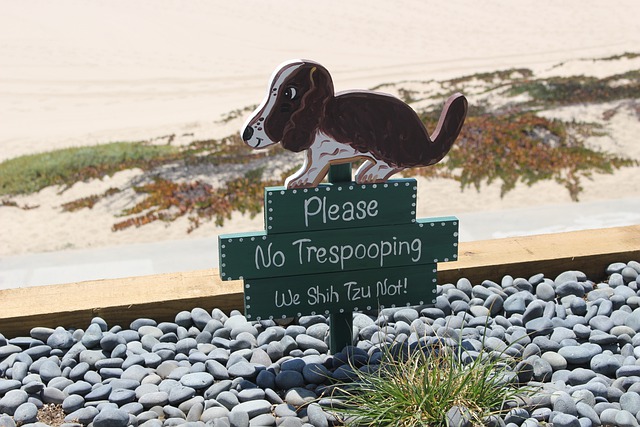What Are EPI Additive Dog Poop Bags?
EPI additive dog poop bags contain an additive that is supposed to “break down” the waste inside of them. This additive is typically made from cornstarch or other similar materials, and it breaks down the waste’s organic matter, essentially liquefying it. This is suppose to make it much easier for the bag to degrade in a landfill and reduces the amount of odour emitted from the bag.

In some cases, the bags can even be composted with the waste inside them. Overall, the idea is that EPI additive dog poop bags are a more environmentally-friendly option than traditional plastic bags and can help reduce the amount of waste in landfills.
Biodegradable plastic bags are made from renewable resources like corn, a sustainable source. They don’t rely on fossil fuels, so they have a much smaller carbon footprint. And, since they’re made from plants, they’ll eventually break down and turn into compost, which you can use to fertilize the soil.
So, if you’re looking for a more environmentally-friendly option for dog poop bags, EPI additive bags are something to consider. In theory, not only are they better for the environment, but they should be more effective at reducing odour.
Using and Choosing Dog Poop Bags
Dog poop bags are needed for pet parents to keep their furry friends healthy and clean. By using dog poop bags, you can ensure that your pet’s messes are properly cleaned up, preventing the spread of germs and bacteria. Dog poop bags are also great for keeping your hands clean when cleaning up after your pet.
Many types of dog poop bags are available on the market, so you can choose the ones that best suit your needs. Some dog poop bags are biodegradable, while others are not. If you’re concerned about the environment, you may want to choose biodegradable dog poop bags. These bags will decompose over time, making them much better for the environment than traditional plastic bags.
When choosing dog poop bags, you’ll also want to consider the size of the bag. Some dog poop bags are small enough to fit in your pocket, while others are large enough to hold all of your pet’s waste.
How Do You Properly Dispose Of Biodegradable Poop Bags?
If you’ve chosen to use biodegradable poop bags to ensure your dog’s waste doesn’t end up in a landfill, congratulations! You’re making a great choice for the environment. But what do you do with the bag once it’s filled? How can you be sure it will break down?
Here are a few tips for properly disposing of biodegradable poop bags:
- If your municipality has a composting program, check if they accept biodegradable poop bags. Some programs don’t, so it’s best to check first.
- If there’s no composting program available, bury the bag in your yard. Bury it deep enough that animals won’t be able to dig it up.
- You can also throw the bag in the trash, but be sure to put it in a lined trash can. This will help keep it from leaking and making a mess.
Make sure you follow these tips to properly dispose of your biodegradable poop bags, and you’ll do your part to help the environment!
Is It Better To Use EPI Additive Or Regular Plastic Poop Bags?
It’s a question as old as plastic poop bags: is it better to go with biodegradable or regular plastic? On the one hand, regular plastic is cheaper and more durable. On the other hand, biodegradable plastic breaks down more easily and stays in landfills for a shorter amount of time. So which one should you choose?
The answer, it turns out, is not so simple. Both biodegradable and regular plastic have pros and cons, and the best choice for you will depend on your situation. Regular plastic is probably your best bet if you’re looking for a cheap and durable option. However, if you’re concerned about the environment, biodegradable plastic is the way.
Of course, there are other factors to consider as well. For example, some brands of biodegradable plastic are made from renewable resources, such as corn or potato starch. Others are made from non-renewable fossil fuels, like petroleum. So if you’re looking for the most environmentally friendly option possible, check the labels carefully before making your purchase.
Ultimately, there is no single “right” answer when choosing between biodegradable and regular plastic poop bags. You’ll need to make a decision based on your own individual needs and preferences. But whichever type of bag you choose, always remember to pick up after your dog.
Decomposition Is Not Necessarily Good For Carbon Reduction
There is a trend of buying “decomposable” single use items. In general, this is not helpful for carbon reduction. The main idea of carbon reduction is to trap as much carbon as possible so that it’s not in the atmosphere contributing to warming. The trapping can be one of many possibilities: stay as trapped carbon in the sugars of trees, as gas thats sequestered in the ocean or deep underground, as microorganisms that settle on the seafloor and stay there after they die. Even plastic bags are considered a type of trapping, keeping it in a landfill for hundreds of years. If a plastic bag decomposes and turns into methane and carbon dioxide, it’s adding to the carbon emissions. Then we need to consider the source of the carbon in the plastic bag. If its a renewable source like fast-growing bamboo then there’s almost net zero carbon because its a matter of drawing it into growing bamboo again and decomposing afterward. If its non-renewable, all we’re doing is taking more carbon from a fixed source and releasing it into the air.
EPI dog poop bags fall somewhere in the middle depending on the source of carbon. This conundrum and difficulty stems from the “single use” aspect of garbage bags, dog poop bags, coffee cups. The only way to get out of the conundrum is to move beyond “single use”. You might see articles recommending that you avoid using the dog poop bags and use newspaper because its “already used”. Well, we should really not be getting paper copies of newspapers anyway because these fall into the same “single use” trap. The only real way to get around this is to use a reusable tool like a dog poop scoop and wash the scoop afterward.

How Long Do EPI Additive Dog Poop Bags Take To Decompose?
Most importantly, the answer to this question depends on the conditions in which they are placed. For example, they will break down quicker if they are exposed to sunlight and heat. If they are buried in the ground, decomposing will take longer. The general rule of thumb is that biodegradable materials will decompose completely from several months to several years.
Only natural pet poop bags will completely decompose. All other types of poop bags, including those made from biodegradable plastic, will eventually break down and turn into compost, which you can use to fertilize the soil.
However, EPI additives can help speed up this process by providing additional oxygen to the bacteria that break down organic matter. As a result, EPI additive dog poop bags generally decompose more quickly than traditional plastic bags.
Is Dog Poop Compostable?
It’s a common question with a not-so-simple answer. The truth is, it depends on the type of dog food being fed and the dog’s health. Ideally, dog poop should be high in nitrogen and low in carbon. You can achieve this by feeding your dog a diet rich in proteins and low in carbohydrates. Also, ensure your dog has plenty of access to fresh water to keep its stool moist. If these conditions are met, then yes, dog poop is compostable.
However, if your dog eats many processed foods or table scraps, its poop will likely contain too much carbon for composting. Additionally, if your dog has health problems that cause diarrhoea or vomiting, you should not add their waste to the compost pile. In these cases, it’s best to bag up the waste and dispose of it in the trash.
Wrapping Up
In conclusion, EPI additive dog poop bags are a great option for those looking for an environmentally friendly way to dispose of their pet’s waste. They decompose faster than traditional plastic bags, providing additional oxygen to the bacteria that break down organic matter. However, they are not suitable for all dogs, and you should always consult your veterinarian before making any changes to your pet’s diet or waste disposal routine.
You can also read:
The Best Green Toilet Paper To Have In Your Bathroom: Top 5
Which Is The Best Eco Friendly Stain Remover?
Ecoffee Cups – Reusable Cup Review
